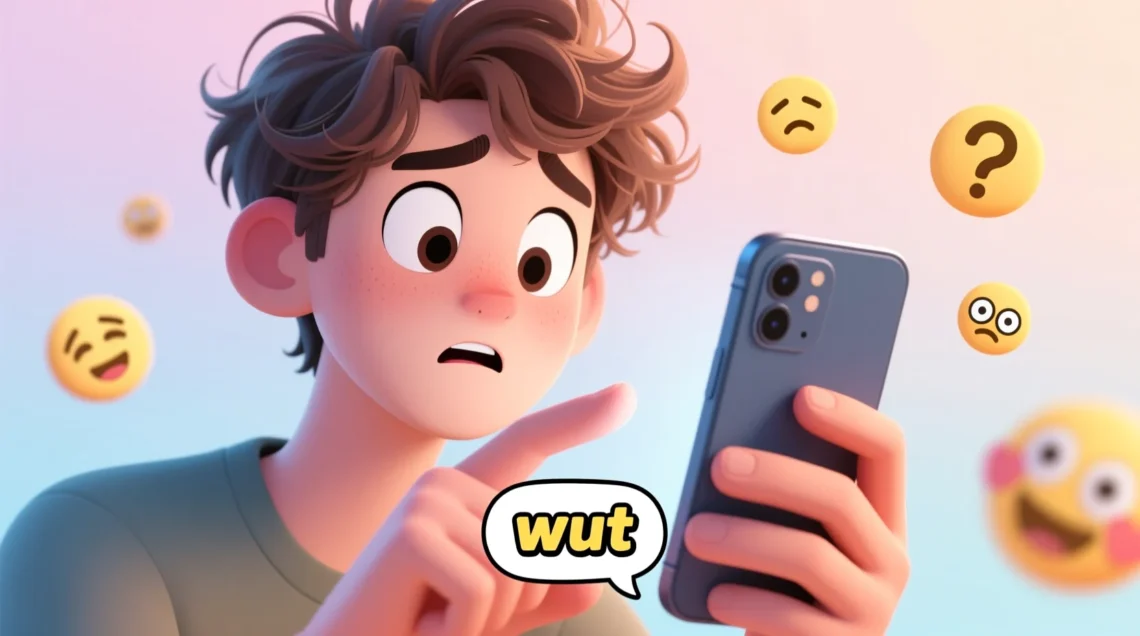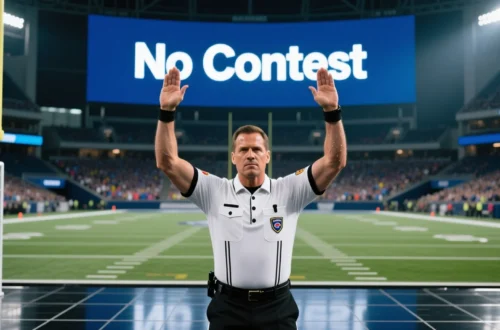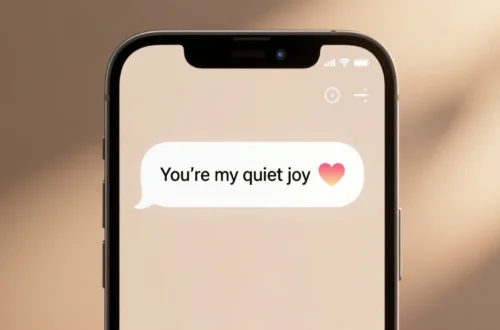In today’s fast-paced digital conversations, abbreviations and slang have become everyday language. One such term you’ve likely encountered in texting, social media, or online chats is “wut.” But what does it actually mean?
Understanding texting slang like “wut” is more than a curiosity—it helps you communicate clearly, avoid misunderstandings, and navigate platforms like WhatsApp, Instagram, or gaming communities with confidence.
This guide will explain the definition, origin, and common uses of “wut,” including examples in conversations, social media, and professional contexts.
By the end, you’ll know how to interpret it, respond appropriately, and use it in your own texts.
Definition & Meaning
The term “wut” is an informal way of writing “what” in digital communication. It is widely used in texting, online forums, memes, and social media to express confusion, surprise, or emphasis.
Example Dialogue:
Alex: “I just saw a cat skateboarding!”
Jordan: “Wut? That’s impossible 😂”
Key Points:
- Primary meaning: “What”
- Contextual nuance: Often expresses shock, confusion, or disbelief.
- Usage style: Informal; mostly digital communication.
LSI Keywords: wut meaning texting, wut in chat, wut slang meaning, wut emoji usage, wut online
Background & History
The use of “wut” emerged with the rise of internet culture and texting shorthand. Early chat rooms, online forums, and instant messaging platforms encouraged short, fast typing, giving rise to slang like “u” for “you” and “wut” for “what.”
Evolution of “Wut”
- Early 2000s: Appeared in forums like 4chan and Yahoo Chat to speed up typing.
- 2010s: Became widely recognized in memes and GIF captions.
- Today: Popular on Snapchat, TikTok, Discord, and Twitter to express exaggerated confusion or disbelief.
Cultural Note:
“Wut” is sometimes associated with humor and internet memes, often paired with images or reaction GIFs to amplify comedic effect.
Usage in Various Contexts
Texting
Mia: “I accidentally sent my grocery list to my boss.”
Leo: “Wut?! That’s hilarious 😆”
Social Media
- Instagram Caption: “Wut just happened here? 😂 #meme #funny”
- Twitter Reply: “Wut? Didn’t see that coming 🤯”
Online Forums & Gaming
- Used to express confusion or disbelief during gameplay:
“Wut? How did he get that kill?!”
Professional Context (Digital Communication)
- Rarely used professionally; better to type “What?” to maintain clarity and formality.
Common Misconceptions & Clarifications
Misconceptions:
- Misconception: “Wut” is rude.
Clarification: Generally playful or expressive, context-dependent. - Misconception: Only young people use it.
Clarification: While popular among Gen Z and millennials, anyone using texting or memes can use it.
Example Dialogue:
Alex: “Is it okay to reply ‘wut’ to a serious message?”
Jordan: “Depends! In casual chat yes, in work email no.”
Similar Terms & Alternatives
| Term | Meaning/Use Case | Notes |
|---|---|---|
| wat | Alternative spelling of “wut” | Meme culture origin |
| what | Standard English | Professional or formal use |
| huh | Expresses confusion | More casual and spoken |
| omg wut | Intensified shock or disbelief | Common in memes/GIFs |
How to Respond to “Wut”
- Casual:
“Haha, I know, right? Totally unexpected 😅”
- Funny:
“Wut indeed! Did that just happen?! 😂”
- Professional/Neutral:
“Could you clarify what you mean?”
- Privacy-Conscious:
“I’m not sure I understand, can you explain?”
Regional or Cultural Differences
- North America: Very common in texting and social media.
- Europe: Recognized in English-speaking communities, less in localized languages.
- Asia: Used among English-speaking internet users, often in memes.
- Latin America: Emerging usage online, mostly youth-oriented.
Tip: Tone and audience determine how “wut” is received across regions.
Comparison with Similar Terms
| Term | Context | Connotation | Notes |
|---|---|---|---|
| Wut | Texting, memes | Confusion/ surprise | Informal, playful |
| Wat | Meme culture | Confusion/ humor | Often in reaction images or GIFs |
| Huh | Everyday speech | Mild confusion | Spoken language |
| What | Standard English | Neutral | Professional/formal |
Usage in Online Communities & Memes
- Discord & Gaming: Used to react to unexpected game events.
- TikTok & Instagram: Paired with funny videos or memes for dramatic effect.
- Reddit Threads: Common in discussions for humorous or exaggerated reactions.
Tips:
- Match tone with your audience.
- Use alongside GIFs or emojis for enhanced expression.
Hidden or Offensive Meanings
- “Wut” is rarely offensive; it’s a neutral or playful slang.
- Misuse can occur if used in serious or professional discussions, where it may seem dismissive or rude.
- Emoji pairing can alter tone: e.g., 🤯 can imply shock, 😂 humor.
Tip: Always read the context before responding with slang.
Suitability for Professional Communication
- Not recommended in emails, reports, or professional messaging.
- Alternatives include:
- “What do you mean?”
- “Could you clarify?”
- “I don’t understand, please explain.”
Example:
Casual chat: “Wut? Didn’t expect that!”
Professional: “I’m not sure I follow; can you clarify?”
FAQs (Schema-Ready)
Q1: What does wut mean in texting?
A: It’s an informal way to type “what,” usually expressing confusion, surprise, or disbelief.
Q2: Is wut rude?
A: No, it’s generally playful; context determines appropriateness.
Q3: Where did wut come from?
A: Early internet forums and meme culture encouraged shortened spelling for fast typing.
Q4: Can I use wut professionally?
A: No, use “what” or “could you clarify?” instead.
Q5: What are alternatives to wut?
A: Wat, huh, what, omg wut.
Q6: Is wut still relevant today?
A: Yes, especially in texting, memes, and online communities.
Q7: Can wut be used internationally?
A: Yes, in English-speaking internet communities, though local slang may vary.
Conclusion
“Wut” is a simple yet versatile slang term used to express confusion, disbelief, or surprise in texting and online communication. Its informal and playful tone makes it popular among millennials and Gen Z, especially in social media, gaming, and meme culture.
Understanding “wut” ensures you respond appropriately, avoid miscommunication, and engage confidently online. In casual chats, memes, or gaming, it’s perfect. In professional settings, stick to clear alternatives like “what” or “could you clarify?”.






